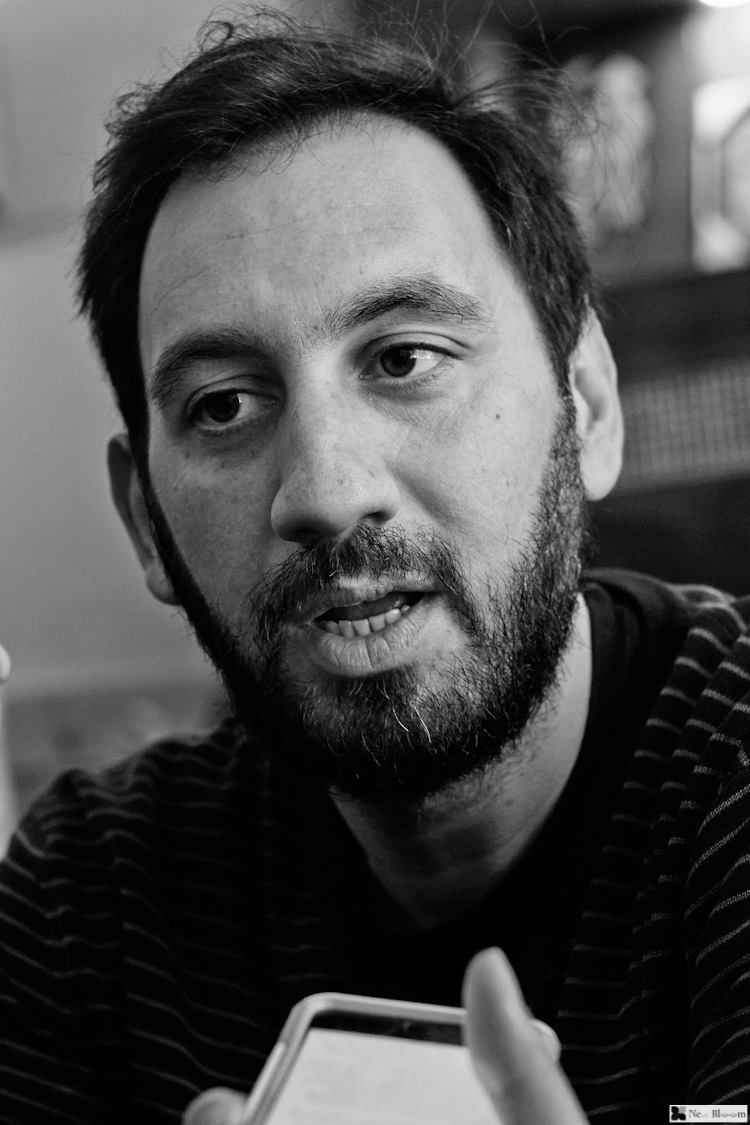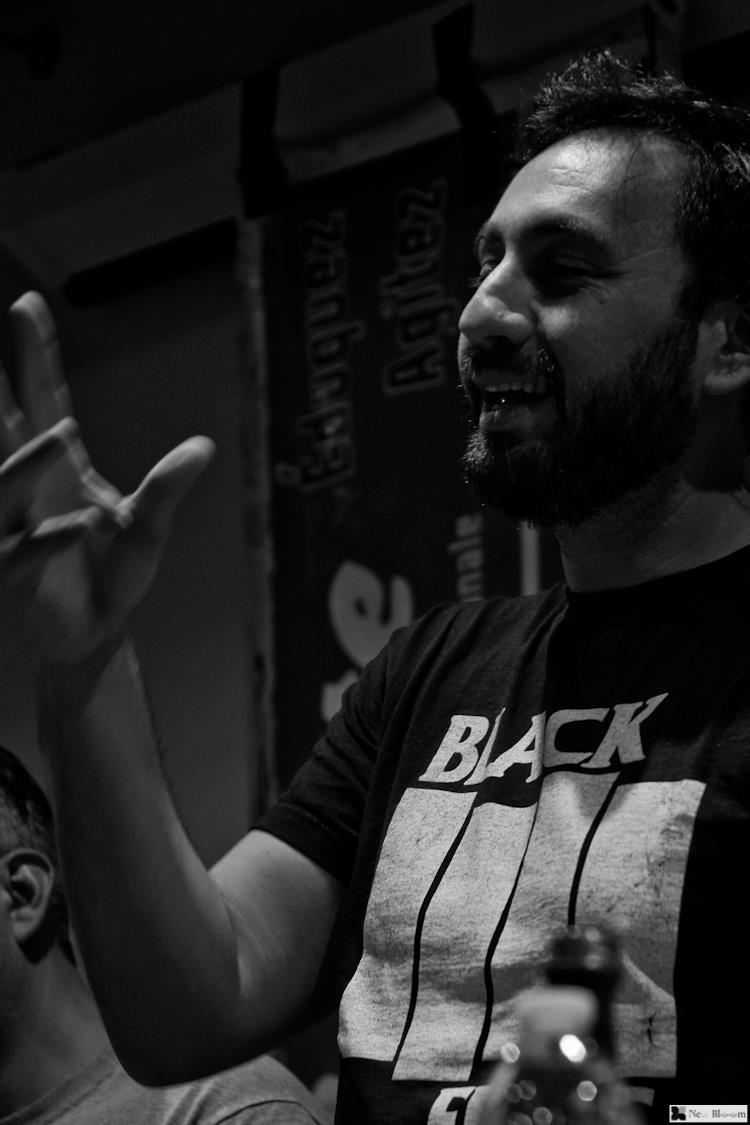by Parson Young
語言:
English /// 中文
Photo Credit: Enbion Micah Aan
Introduction
Historically, Greece has been a small capitalist country and it entered the 2008 world slump in debt. The world crisis has massively added to its problems. Since 2009, the state of Greece has been in a tremendous fiscal crisis and as a result borrowed tremendously from the European Central Bank, on the condition of serious austerity measures leveled against the Greek working class. The austerity measures implemented by the Troika (made up of the European Commission, the ECB and the IMF) and the Pasok government promised to improve the economy through austerity measures justified through tropes of “belt-tightening” and “fiscal responsibility.” However this only accelerated the decline of Greek economy, which is encumbered with a debt that is 177% of its GDP in 2014. Year after year, the ECB demands repayment of the loan, and with a debt that can only grow larger, successive Greek governments have been accepting more and more bailouts on the condition of harsher austerity measures, greatly reducing social welfare policies, education, public spending, and massive privatization of the economy.
Facing this tremendous assault, the Greek working class has risen up valiantly against the government and the troika, staging more than 30 national general strikes since 2010. The Greek working class’s momentum entered the political realm in 2015, when it voted a previously fringe party, Syriza, into the government with a majority government. The party’s leader Alexis Tsipras promised to end debt payment, and possibly leave the Eurozone should the ECB refuse to accept his terms. Tsipras’ victory was symbolic, in that it was the first outwardly anti-austerity, anti-Euro party to be elected into office.
 Photo credit: Enbion Micah Aan
Photo credit: Enbion Micah Aan
Tsipras, unfortunately, would go on to criminally disappoint the Greek people. Only a few months into office, he attempted to negotiate with the ECB, and held a redundant referendum asking the people of Greece whether it should accept or reject bailout proposals from the EU, despite that he had already been elected into office on such a platform. The result was an overwhelming 61% who voted to reject the proposals. Yet, Tsipras betrayed the voters by ignoring the referendum and accepting the austerity program prescribed by the Troika.
Facing opposition within his own party, Tsipras resigned as Prime Minister in the hopes of facilitating the removal of the left of Syriza in the subsequent snap election. Enraged with Tsipras’ betrayal, a large faction of Syriza’s cabinets, ministers, and members split from Syriza, and formed the Popular Unity Party, calling for a return to Syriza’s previous anti-austerity stance against the troika. Due to the belated establishment of Popular Unity it failed to win a substantial amount in the election and Tsipras returned to power after brokering a shameful alliance with the far-right Independent Greek Party in a emergency election, with an extremely low turnout.
Orestis Doulos is a comrade of mine in the International Marxist Tendency, whose section in Greece is known as the Communist Tendency. Orestis was elected as an openly Marxist candidate for councilor in New Philadelphia (a section of Athens). Orestis and other Greek comrades entered Synaspismos which in 2009 was the main party of the Radical Left alliance of Syriza, and converted the front into a party in 2012. During the rise of Syriza, the Greek Communist Tendency tirelessly advocated a break with capitalism as a solution to Greece’s economic crisis from within. Their faction successfully elected two candidates onto Syriza’s Central Committee. When Tsipras’ betrayal became final, the Communist Tendency left Syriza and became a co-founding faction of the Popular Unity Party, and they continue to attempt to swing the Party onto a Marxist program.
I had the honor and fortune to interview Comrade Doulos in NYC on November 8th, 2015 on behalf of New Bloom. I hope that this interview can refute Taiwanese mainstream media, which largely dance to the tune of global bourgeois media in faulting the Greek people for the crisis.
Parson Young: Can you introduce yourself, and explain why Popular Unity was created?
Orestis Doulos: I’m Orestis Doulos. I’m a member of the Greek section of the International Marxist Tendency (IMT). In Greece, we’re also known as the Communist Tendency. Popular Unity is a left-wing split of Syriza. It was created by the Left part of Syriza, just after the betrayal of the Syriza leadership, after the betrayal of the referendum.
PY: Greece’s debt crisis has received coverage in Taiwan, but most portray the Greek people as unreasonable fraudsters who refuse to pay back the money they borrowed, even going as far as saying that the fact that Greeks’ working hours are the longest in the world is a made up fact. Can you speak to these kinds of criticisms, the reason for Greece’s mounting debt, what the Greek working class are going through right now, and why you think Greece should reject the debt forced onto it?
OD: The truth is, the Greek workers work more hours than the average working time of the EU. An average Greek worker works around 9 to 12 hours a day. Because of the crisis, the bourgeoisie attacked their working rights: they have extended the working hours without raising the wages. It is a lie that the Greek people don’t work or that they are lazy. It is the opposite. The bourgeoisie think that they can get out of their crisis by squeezing the working class, making them work more for less wages.
Workers in Greece work too hard to make ends meet, to survive. Because of the high unemployment rate, they cannot afford to leave their jobs or seek better ones. The capitalists are using the conditions caused by high unemployment rate to increase work hours, to exploit workers even more.
What is happening now is that the bourgeois state is in a debt crisis. There are private and public debt issues. Private debt was created when the capitalists were trying to extend the economic boom by over-loaning exploited profits to the workers, in order to make people purchase left over goods caused by overproduction.
 Photo credit: Enbion Micah Aan
Photo credit: Enbion Micah Aan
The public debt, a fact of capitalism, happened when the state borrowed money from the banks in order to aid the capitalists. When the crisis started, the State borrowed money from the European Central Bank in order to pay for the Greek conglomerates and banks to stop them from collapsing, otherwise the economy would collapse. All the money that the Greek government borrowed from the ECB went straight to saving the big businesses in crisis. Now, ordinary people will have to pay this debt to the ECB. This debt has nothing to do with the Greek workers or any ordinary people of Greece.
That’s why we call for a revolutionary government, which stops paying these public debts, because the Greek people do not owe the money to the ECB, it is the capitalists and the big banks who do.
PY: China is extending its influence in Europe economically, with a series of recent state visits to EU core countries, as well as establishing the Asian Infrastructure Investment Bank with many European countries as its founding members. Can you speak to China’s relationship with Greece in general, and with the Greek debt crisis in particular?
OD: What is happening is that China (and Chinese businesses) are investing in Greek ports and harbors, because Greece is the gate of Chinese products to Europe. That’s why they are interested in investing in Greek ports. Actually over half of the ownership of most of Greek ports, especially the port of Piraeus, belong to Cosco, a Chinese public company. The Chinese are investing in Greece to gain access to the European Market.
The Syriza government accepts the rules of capitalism, which led to them to “seek new investments” in order to “create new jobs.” Yet, the only reason why Chinese would invest in Greece is because of the low wages and decimated labor rights, which allows them to exploit workers.
PY: Can you speak as to why the youth and working class of Taiwan should care about the Greek debt crisis? What do you think they should learn from this?
OD: On TV and in the news, the bourgeois analysts are trying to present Greece as an exception, that what’s happening in Greece won’t happen in any other countries, in Europe or anywhere else. But what’s happening in Greece is a deep crisis of capitalism, so Greece is not the exception, but the future of all capitalist countries.
In Greece the crisis is very extreme, because it is the weakest link of European capitalism with weak productive basis. That’s why the crisis appeared and expanded in Greece to such a level. But this will be the case in every capitalist countries; it will happen everywhere.
So what the youths and workers have to learn from the crisis of Greece is that the system cannot work normally forever. The capitalist system has its contradictions, which at certain points will create crises. Workers have to be prepared for this.
 Photo credit: Enbion Micah Aan
Photo credit: Enbion Micah Aan
PY: What does Popular Unity plan to do to resist the overwhelming influence of the EU, externally and internally? What does the Communist Tendency within the Party plan to do in the near future?
OD: Popular Unity is a typical Left Reformist party. The leadership believes that it can make people’s lives better through reforms on the basis of capitalism. Popular Unity leaders believe that they can negotiate with the EU as Tsipras did, and if the EU leaders won’t allow us to apply reforms in favor of the working class, they call for a break with the EU and to establish a national currency. They think that this will help the economy grow. Actually, this is not the case. On the capitalist basis, this is not a matter of a national currency or a European currency, it’s a matter of the deep crisis of capitalism itself.
We as the Communist Tendency has always criticized Tspiras, and now the leaders of Popular Unity on their illusions with the system. The crisis of capitalism is so global and so deep that no one can apply reforms in favor of the working class, because the capitalists who control the economy won’t let them do it. What we are saying is: you have to have a revolutionary program that connects with the needs of the working class to create a change in society.


 Photo credit: Enbion Micah Aan
Photo credit: Enbion Micah Aan Photo credit: Enbion Micah Aan
Photo credit: Enbion Micah Aan Photo credit: Enbion Micah Aan
Photo credit: Enbion Micah Aan